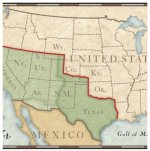Innu...you forgot them. They were the Esquimaux of yore. Innu cover two continents.View attachment 20388
Honestly, I’ve never thought of the natives in Alaska as Alaska natives, or the natives in Hawaii has Hawaii natives, or even as American natives….& as far as the Hawaiian branch goes, I’ve just thought of them as Polynesians…. Never made that distinction.
The natives in Alaska were just natives in Alaska mentally for me I guess. never dawned on me to try and break that down as part of an American thing. In hindsight, I guess yourself as an American, would see them as branches of America, and then would have those mental subdivisions. I get it, but I’ve never thought that myself.
OK, your question in the opening post is making more sense now. It was just outside of my mental framework.
So above you’re asking if a Samoan should be able to portray a Hawaiian in a movie without offending the sensibilities of somebody or another? Both being Polynesian… And maybe my example question above isn’t a great one because I think Samoa has ties to America too…. but anyway, if it doesn’t offend other Polynesians, should it offend anybody else? Does that island cross pollination in actor role, selection, offend, other Polynesians?
Does a Hawaiian (I guess being an American native to Americans anyway) playing a movie roll as a “continental” aboriginal offend, the non-island continent based Native population? Or vice versa? If it doesn’t offend those two populations, then the rest of us shouldn’t give a shit. If it does, then it needs to be mentally revisited.
I don’t think we do. I think that’s an American thing. I don’t think Canadians do anyway, but maybe that’s just me.
For those that have never been in the north or lived in the north, maybe? For those that do have that experience though, that would be a big negative.
I think this is more national thing than an aboriginal thing. Seriously. I don’t know how Americans think of Alaskan based native people. It never dawned on me that you would think of them differently.
On the Canadian side of the borders (plural) when you factor in the Alaskan Canadian border also… the aboriginal population in the north see themselves differently. They’ve been treated differently by government.
First, the Inuit are not Eskimos. if you make that mistake, you might get a punch in the mouth for your terminology. They are not treaty people So they see themselves as something different. If you’re in a bar in the north…. You don’t mistake Inuit for Dene, or Dene for Cree, as you might get that literal or figurative punch in the mouth again.
Weird question for you. Did America bother with the reservation system in Alaska? Are there reservations up there? Did the Continental US want the land that was underneath the aboriginals up there enough to bother with a reservation system??
Injuns on Film
- Thread starter Tecumsehsbones
- Start date
You are using an out of date browser. It may not display this or other websites correctly.
You should upgrade or use an alternative browser.
You should upgrade or use an alternative browser.
There can be several bands in a nation. Also some overlap. Gets complicated.When I was letting the dogs out for a pee in the night last night, I guess I was a little clueless and not really awake. Same again early this morning before the coffee kicked in.
Weird question, but are there enough native actors from each Nation (I think what you’re calling Nations we call Bands, but I could be wrong here, and it wouldn’t even be the first time in this thread) to satisfy the requirements of having proper representation from each band for each roll?
There are some outstanding native actors (like Adam Beach, who’s also Canadian), but I don’t know about the shear volume for representation.
Not to be insensitive, but branching out further and distinguishing between Hawaiians and other Polynesians, is that an issue for Hawaiians & other Polynesians (?) roll-wise I mean?
Up here, I could see there being an issue between, let’s say, Plains Cree & Dene actors playing rolls written for the other, as there’s some pretty strong….prejudice… between the two ethnic subgroups, but that comes more from how the government has divided them between entitled for rights & not.
Ahhhh….ok. Band, Clan, Tribe, Nation, Confederation’s?, Now Nations inside of Nations (& not talking about Quebec). Slowly making more sense, but maybe as Canadian political division as opposed to American political divisions?There can be several bands in a nation. Also some overlap. Gets complicated.

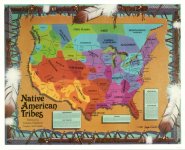
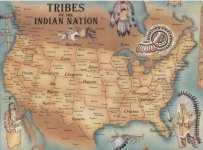
Then weirdly, interestingly weirdly, this:
And, of course, all these divisions and classifications were made by Europeans according to their own worldviews and biases.
Yes. Not just Europeans, but Canadians and Americans, according to their own systems, it seems. Much of Canada’s comes from the Indian Act…& I’m just not up on the American system for this.And, of course, all these divisions and classifications were made by Europeans according to their own worldviews and biases.
That’s why I was having an issue, wrapping my head around the whole division of Natives from Alaska being “Alaskan Natives” & “Natives from Hawaii” thing, as a Canadian I didn’t have the mental framework for the American divisions. I just didn’t see Natives from Alaska as a separate thing, and it didn’t even even picture Hawaiian Natives as Natives but as being Polynesians.
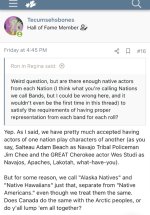
I just didn’t realize that “we” call Alaskan natives, and native Hawaiians, something separate from Native Americans. Maybe the “we” is nationalistic in Origin???
"We" in this case is the U.S.Yes. Not just Europeans, but Canadians and Americans, according to their own systems, it seems. Much of Canada’s comes from the Indian Act…& I’m just not up on the American system for this.
That’s why I was having an issue, wrapping my head around the whole division of Natives from Alaska being “Alaskan Natives” & “Natives from Hawaii” thing, as a Canadian I didn’t have the mental framework for the American divisions. I just didn’t see Natives from Alaska as a separate thing, and it didn’t even even picture Hawaiian Natives as Natives but as being Polynesians.
View attachment 20399
I just didn’t realize that “we” call Alaskan natives, and native Hawaiians, something separate from Native Americans. Maybe the “we” is nationalistic in Origin???
Brief primer. . . Natives are mentioned exactly once in the Constitution, where Congress is given the authority to "regulate Commerce among the several States, with foreign States, and with the Indian Tribes." U.S. Const., Art. I, sec. 8.
The courts have consistently held that this means all "relations" with the nations are a matter for the Federal government. This breaks down though, because states do things like set up State reservations, and the whole set-up of jurisdiction and Indian "sovereignty" has been ruled by the Supremes as a matter of "balancing the Federal, state, and tribal interests." The rule is that a state action with regard to Natives cannot directly contradict a Federal action, but is OK if it supplements or otherwise does not directly contradict a Federal action.
At the Federal level, continental Natives are sometimes treated differently from Alaska natives (some of whom are Innu and some of whom are continental) and Native Hawaiians, who are basically Polynesian, and sometimes all lumped together in various legislation about "Natives."
This may give you some idea why I stay the hell away from Indian law.
sorry, i thought he was mexican. my bad.Robert Beltran is Native. Case closed.
As much as you are Scottish, or German, or whatever. Beltran was born in Bakersfield.sorry, i thought he was mexican. my bad.

The dark Mexicans in the northern area are Natives. California used to be Mexico. Mexico lost a big chunk of land to the US.sorry, i thought he was mexican. my bad.

California, Texas, New Mexico, Utah, and Nevada, Arizona, and parts of Colorado, Oklahomo, Kansas, Nebraska and Wyoming
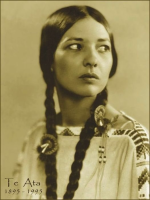
https://www.facebook.com/profile.ph...ZOHD0IrU6xsiPSAd339pXrywC5PWIW&__tn__=<,P-y-R
Native American Tribal Family
peSostdnortt67mM6P8 cYh3030 6ea0:9a761s5y6rat1gh49et cal9dl5 ·Mary "Te Ata" Thompson Fisher
1895 - 1995
Te Ata Thompson Fisher, whose name means “Bearer of the Morning,” was born Dec. 3, 1895, near Emet, Oklahoma. A citizen of the Chickasaw Nation, Te Ata was an accomplished actor and teller of Native American stories.
She received her early education in Tishomingo, and eventually went to the Oklahoma College for Women. While there, it was evident Te Ata had a natural talent for drama.
Her career as an actor and storyteller spanned more than 60 years. She worked as a storyteller to finance her acting career. She would tell Chickasaw legends, myths and chants, including performing rituals in native regalia.
Te Ata attended the Carnegie Institute of Technology in Pittsburgh, Pennsylvania, for one year. From there, she moved to New York City, where she met and married Clyde Fisher. During the 1930s she performed at summer camps in New York and New England.
In the prime of her career, she performed in England and Scandinavia, at the White House for President Franklin Roosevelt, for the King and Queen of Great Britain, and on stages across the United States.
Although Te Ata worked as an actor and drama instructor, she is best known for her artistic interpretations of Indian folklore, and for her children's book she co-authored on the subject.
Her world-renown talent has won her several honors including induction into the Oklahoma Hall of Fame in 1957, being named The Ladies’ Home Journal Woman of the Year in 1976, being named Oklahoma's Official State Treasure in 1987, and having a lake near Bear Mountain in New York named in her honor.
She is also the subject of a video, God's Drum, the proceeds of which have supported the Te Ata Scholarship Fund for Indian students at her alma mater, the University of Science and Arts of Oklahoma in Chickasha, Oklahoma.
Te Ata died Oct. 26, 1995, in Oklahoma City, though her legacy and influence on the Native American storytelling traditions continues to this day
